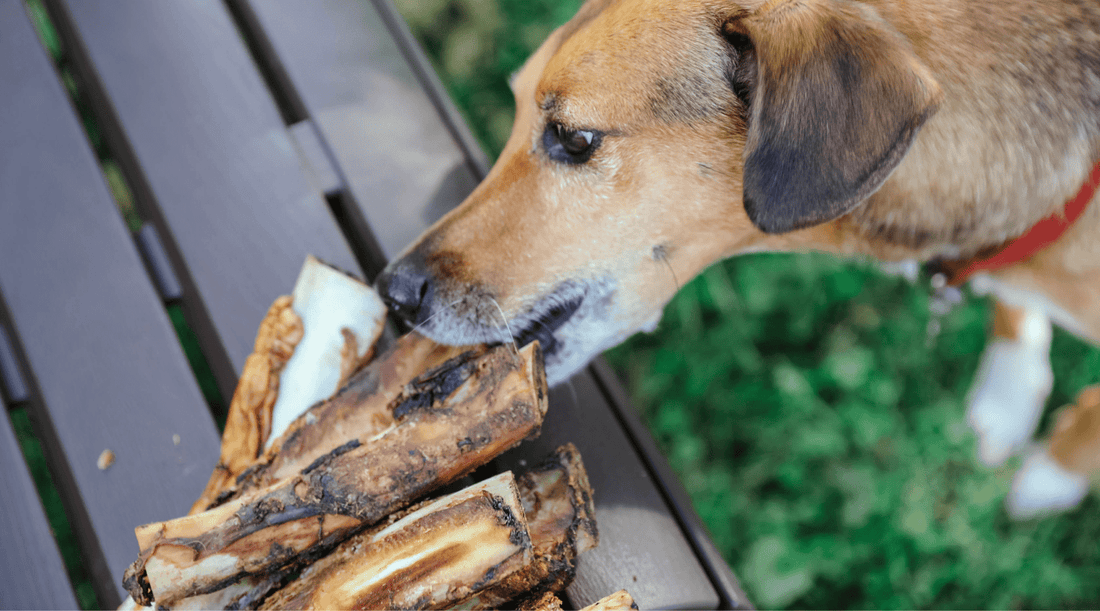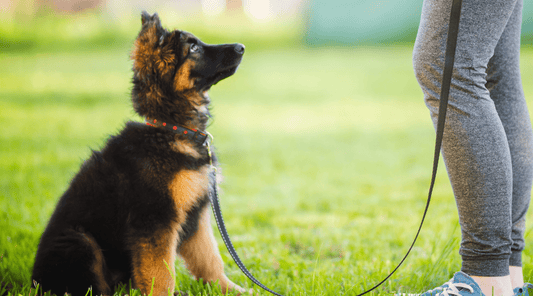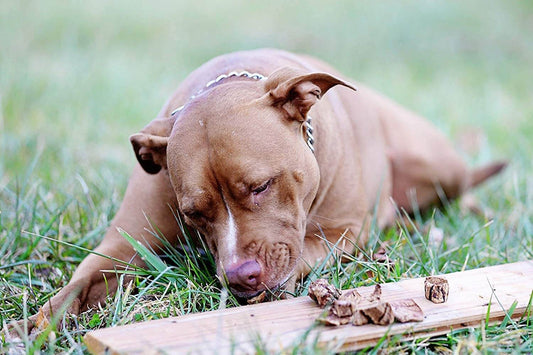
Can Dogs Have Rib Bones? Chew or Chew Not—That is the Question!
Dawn Miller Nov 21, 20245 Minute ReadSome days, there’s a lively discussion at the neighborhood dog park about what’s safe and what’s a no-go for our fur friends. Just last week, as a new golden retriever puppy, Max, bounced around, one of the regulars asked, “Can dogs have rib bones?”
Naturally, it sparked a lot of debate among us dog moms and dads, each with our opinions on the best treats, chews, and dog bones. One of my neighbors, Tom said, "no way!" as he rounded up his playful cocker spaniel, Charlotte. A pug mom, Destiny, spoke up, "Cooked bones are bad for dogs. They'll splinter."
Others disagreed. "Dogs love bones. It's cruel to deny their instinct to chew."
To clear things up, I decided to break down the debate from both sides to find out whether rib bones are safe and beneficial for our pups or the villains some of us are making them out to be.
What Type of Bones Are Good for Dogs?
The best bones for dogs offer teeth cleaning benefits. Dogs use dog bones to scrape their teeth clean. The best bones can reduce the bacteria count in a dog's mouth by 60-80% with just 12 days of chewing.
Whether they get this from a real bone or not is up for debate. But positive effects on oral health have to be part of the discussion. That means no added sugar or bones that don't last longer than kibble.
Good dog bones also stimulate a dog mentally, helping them manage their boredom, anxiety, and destructive tendencies. So, a dog bone must last longer than a few minutes with an active chewer like my lab mix, Bruno. The best of the best dog bones are like dog puzzles. So, they encourage my pups to twist, paw, manipulate and lick the bone to get the treats out of the bone.
It's like their social media feed, releasing little hits of dopamine that help them feel content—all in moderation, of course.
A bone that's good for dogs is also going to be safe. So, if we're here today asking: can dogs eat beef rib bones, safety has to be part of the equation.
If the answer is "no, the ribs are not safe."
Then, I say, "no way!"
It doesn't matter what the benefits are. They wouldn't outweigh the risks when it comes to the lives of those my partner has called my "furry kids" after my own human kids left for college.
Finally, for a bone to be called "good for dogs", I believe they should be healthy treats for dogs. Nutritious, single ingredient, no questionable items on the label. All the better if it has a lot of healthy fat, protein, vitamins, and minerals—preferably not synthetic or unnaturally added.
So, can dogs eat rib bones? Do they meet the criteria of a good bone? The answer has some caveats. And I believe that's why people are so adamant with their "Yes" or "No Way!"
Can Dogs Have Rib Bones?
There are some kinds of ribs that dogs should not have. For example, pork ribs are generally unsafe.
If they're raw, they may carry brain parasites and other pathogens. The American Veterinary Medical Association recommends against raw food for dogs and cats. But what if they're cooked?
After a big backyard barbeque, is it safe to give a dog the rib bone leftovers?
I wouldn't do it.
Any dinner bones have been cooked too long and at too high a temperature. They become unsafe. And I'd bet when people say "no ribs for dogs", this is what they're thinking of. Beyond the cooked vs. raw, pork bones are not incredibly dense. They're more likely to splinter regardless of preparation. The American Kennel Club recommends that you never give your dog pork bones.
On the other hand, beef ribs have a denser bone wall. They're less likely to splinter—that is, if they are prepared correctly. I still wouldn't give my dogs raw beef rib bones or backyard dinner rib leftovers for the same reason: raw pork bones and rib dinner bones are bad—no... dangerous!—for dogs.
Single-ingredient beef bones must undergo a careful, slow and low-heat cooking process to achieve a safe density for my dogs. I don't trust myself enough to consider this with a home smoker or grill.
It's a precise process.
Beef ribs also check the boxes for dental health, mental stimulation, and nutrition. So, I'd call marrow-filled ribs good bones for dogs.
Plus, you can refill dog bones with tasty treats from my free dog bone refill guide.
Are Beef Ribs Safe for Dogs?
They are safe when prepared correctly and properly stored. It's important to note that beef bones come from beef herds, not dairy cows. Sadly, by the time dairy farmers retire a cow, she has weaker bones because of years of hard labor (milk production), leaching calcium from her bones.
If a dog bone doesn't say if it's from dairy or beef herds, I won't buy it.
Beyond that, I have some safety tips for beef rib bone consumption.
Choose the Right Size Bone
Dogs should never have bones smaller than their head in one direction. Meaty marrow-filled rib bones are best for medium-sized dogs up to 50 lb. I buy beef rib bones for my terrier, Pixie.
For smaller dogs up to 15lb, you can find beef riblets. These are single-ingredient marrow-filled ribs. But they've been sliced to make the bone and the rich marrow more accessible for small mouths.
Now, let's say you have a bigger dog, like my lab mix Bruno. Ribs aren't the best choice for him. He'd probably swallow it or shatter it in one bite. I would choose bones for big dogs, like Champs Meaty Mammoth Bones.
Limit Chew Time
A little bit of social media every day can feel relaxing. But if you do it all day, it becomes an obsession. For dogs, chew time needs its limits, too. So, like a good dog mom, I set some boundaries. 15-20 minutes 2-3 times a week maximizes the benefits—dental, mental, and nutrition. And it reduces the risk of my dogs obsessively gnawing to the point of breaking the bone.
Besides, I don't want to spoil their dinner. Dog treats, even super healthy ones, should only be around 10% of a K9's diet.
Store Properly
Freeze the bone between chew sessions to keep stuff from growing on it. Put it in a freezer bag to retain moisture, and you can give the bone to your dog right out of the freezer. Bone marrow thaws fast because of its gelatinous consistency.
Supervise
Keep your pups near while they enjoy their healthy treats for dogs. This can ensure you don't forget and let hours pass. It also makes sure you're nearby if your dog did find some clever way to fit that big dog bone into their mouth and swallow.
Bottom Line: Can Dogs Eat Beef Rib Bones
Are beef ribs safe for dogs? The debate continues. But rib bones can be safe for some dogs when chosen thoughtfully and given with care. For many, other natural options like knuckles, kneecaps, or femur bones are better suited for healthy chew time. So next time Max’s dog mom or dad asks about rib bones, we’ll all be ready with the facts!
Available On:





